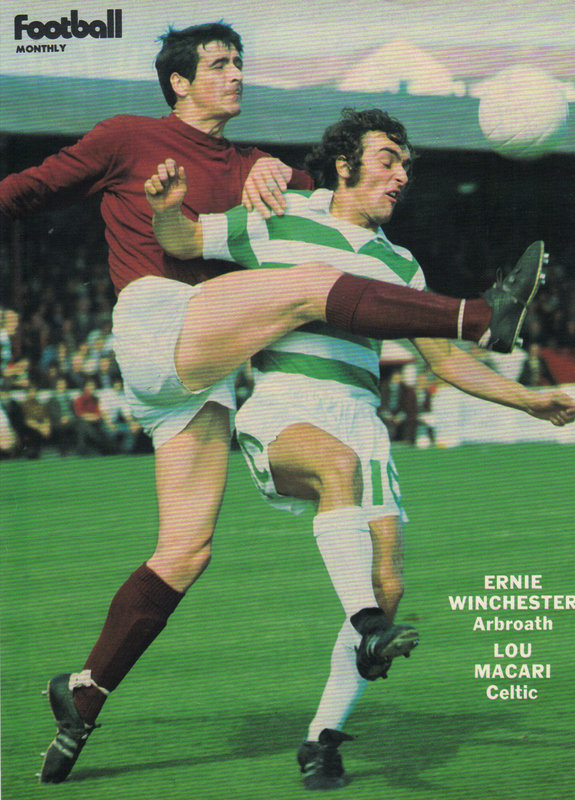 From the Scotsman By MARTIN HANNAN
From the Scotsman By MARTIN HANNAN
Published on 11/05/2013 00:00
Born: 18 May, 1944, in Aberdeen. Died: 8 May, 2013, in Watford, aged 68
ERNIE Winchester was one of those footballers for whom the term cult hero was invented. A big tough centre-forward he scored some spectacular goals in the 1960s and 70s, but also had fans shaking their heads at some equally spectacular misses. He will always be remembered, however, for his wholehearted commitment, and that is why his death some 40 years after his retirement from football has saddened so many.
Born the third son of George and Ethel Winchester – his two elder brothers predeceased him – Winchester attended Torry School and was a schoolboy international. He signed for his local club aged 15, going to train full-time at Pittodrie straight from leaving school. He made his debut for the first team at the age of 17 on 25 April, 1962, when Aberdeen beat Rangers 1-0.
Even as a teenager, Winchester was a shade under six-feet tall and well-built, and he soon made an impact as a bustling centre-forward, scoring 20 goals in 35 matches in his first full season, 1962-63. He repeated that feat in season 1965-66, in which he played 40 matches.
It would be fair to say that Winchester’s accuracy in front of goal was not always at its best, sometimes driving the fans to despair, but he was a more intelligent player than he was often given credit for.
The 1966-67 season was to be his last for Aberdeen. Club manager Eddie Turnbull had enjoyed a rollercoaster relationship with the man he called “The Gun”, and knowing that Winchester wanted a transfer, he told the player to put himself “in the shop window” during a Scottish Cup quarter-final replay against Hibs. In front of a midweek record attendance of 44,000, Winchester responded with one of his best displays for Aberdeen, scoring twice in a 3-0 victory that put Aberdeen on the road to that season’s Scottish Cup Final.
In all, Winchester played 169 times for Aberdeen, scoring 91 goals, a healthy strike rate considering the Dons’ form was patchy while he was at Pittodrie.
Tempted by the lure of a fresh start in the United States, Winchester signed for Chicago Spurs of the National Professional Soccer League where he scored 13 goals in 13 matches for them.
The League lasted just one year before merging with the United Soccer Association to form the North American Soccer League. Chicago Spurs moved to Kansas City, where he played 27 matches in the 1968 season, scoring ten goals.
It is often thought he returned to Scotland because he was homesick, but in fact he went to West Germany to train with Schalke 04 and was on the brink of signing when Hearts’ manager John Harvey moved in to secure him for £10,000. It was in a friendly against West Germany’s Eintracht Frankfurt that he made his debut for Hearts, scoring in a 1-1 draw.
Winchester was brought to Tynecastle to complement the more cerebral talents of Donald Ford who recalled that his old striking partner was beset by injuries in his three years at Tynecastle. Ford said: “He had a long list of injuries which were mostly the result of his 100 per cent commitment. But just as he was rumbustious on the pitch, he was a very nice man off it.”
Winchester played 75 times for Hearts, scoring 14 goals. In July, 1972, he signed for Arbroath where he lasted one season before his premature retirement, injuries having taken their toll.
Having run a health food shop and worked in insurance, Winchester moved to the USA and on his return in 1995 suffered a serious heart attack. He moved to England to be near his family and suffered a long illness before succumbing to a bout of pneumonia. Married twice, he is survived by his six children.
There will be a minute’s applause in tribute to Winchester before the Aberdeen v Hearts match on 18 May, which would have been his 69th birthday.